by Lisa Cooke | Feb 4, 2014 | Family History Library, Family History Podcast
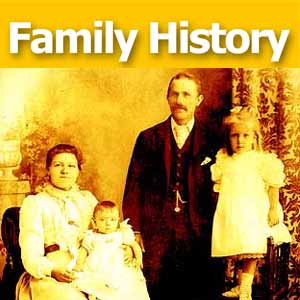
Originally published 2009
Republished February 4, 2014
[display_podcast]
Download the Show Notes for this Episode
Welcome to this step-by-step series for beginning genealogists—and more experienced ones who want to brush up or learn something new. I first ran this series in 2008. So many people have asked about it, I’m bringing it back in weekly segments.
Episode 17: Using Family History Centers, Part I
This episode is the first of a series in which we answer questions about Family History Centers (now also known as FamilySearch Centers), the regional satellite facilities of the main Family History Library in Salt Lake City, Utah. When I’m done with you, you won’t have a single excuse left for hesitating to use these wonderful family history research resources!
My very special guest is friend of the show Margery Bell, Assistant Director of the Oakland Family History Center in Oakland, California. Margery has over 35 years of experience working in Family History Centers. In our first segment she introduces us to the Family History Center and walks us step by step through the process for ordering and using microfilm. Then in our second segment, Margery discusses the wide range of resources beyond microfilm that you will find at both your local Family History Center and one of 14 larger Regional centers. In our final segment she digs in to all of the kinds of other genealogical resources we can find at Family History Centers. Even if you’ve already been to a Family History Center, you’re still going to learn some new things along the way!
Links
Find a Family History Center near you
Family History Library Online Catalog
by Lisa Cooke | Jan 31, 2014 | 01 What's New, Genealogy Gems Podcast
It was a daunting thought!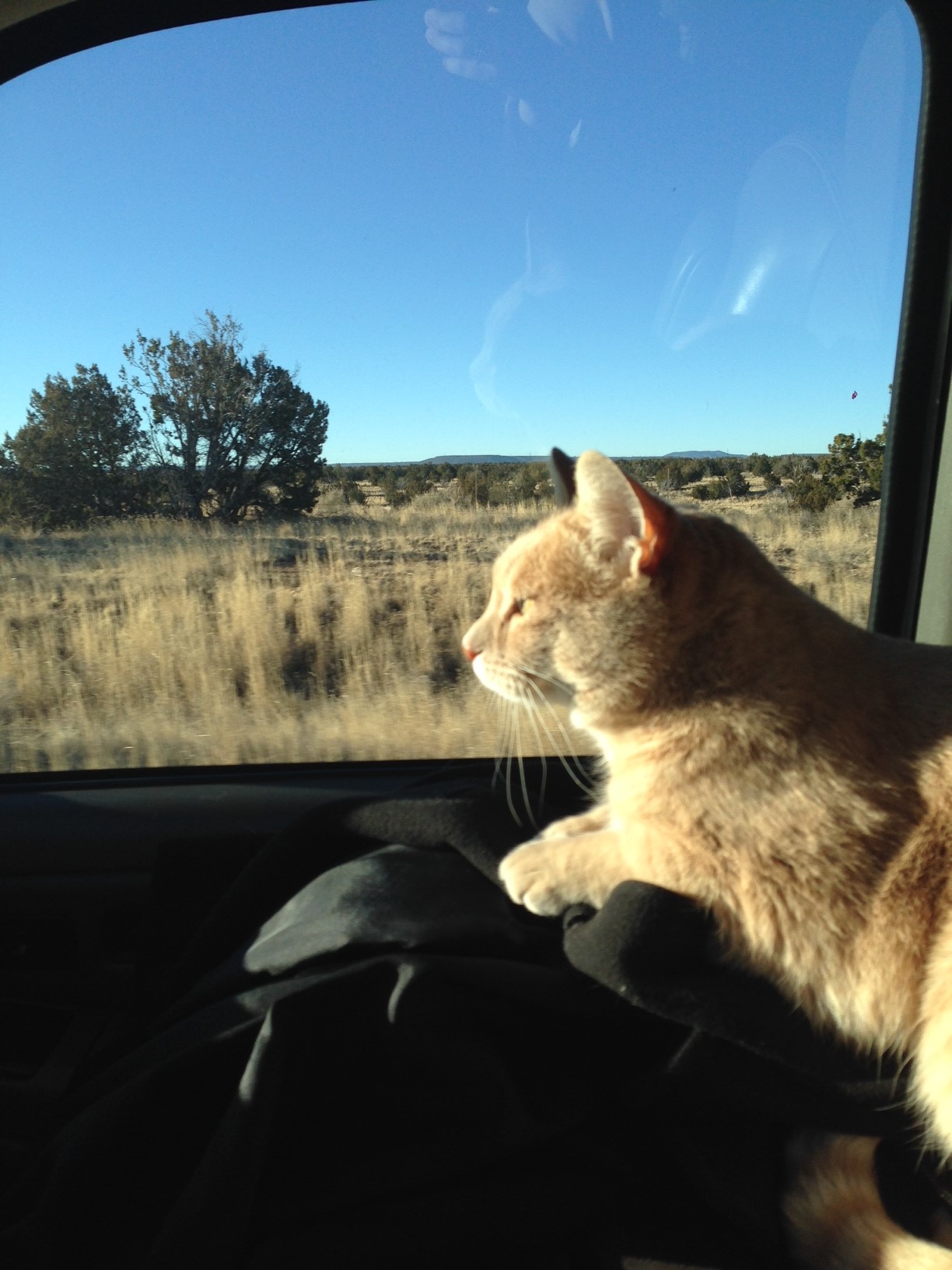 I had over 1650 miles to drive last weekend to make the move from California to Texas. And I’m notorious for getting sleepy on car rides.
I had over 1650 miles to drive last weekend to make the move from California to Texas. And I’m notorious for getting sleepy on car rides.
My husband was driving the moving van, so I needed to drive the suburban on my own. How was I going to keep myself alert and occupied?
And then it hit me (the podcaster): Listen to podcasts! <SMACK> I coulda had a V8!
I loaded my iPad and smart phone with dozens of various podcast episodes. I ended up learning a ton, and having a grand time, with no zzzzzs!
I often hear from folks “I just can’t seem to find time to listen, or do half the other things I need to do.” But you don’t have to drive 1650 miles to make time to listen to podcasts.
(By the way, I’ve heard from many of you asking if my cat Ginger survived the trip since in our last Genealogy Gems e-newsletter you saw how she had packed herself. Not only did she survive it, she became queen of the car. Here she is perched on the front passenger seat taking in the New Mexico landscape!)
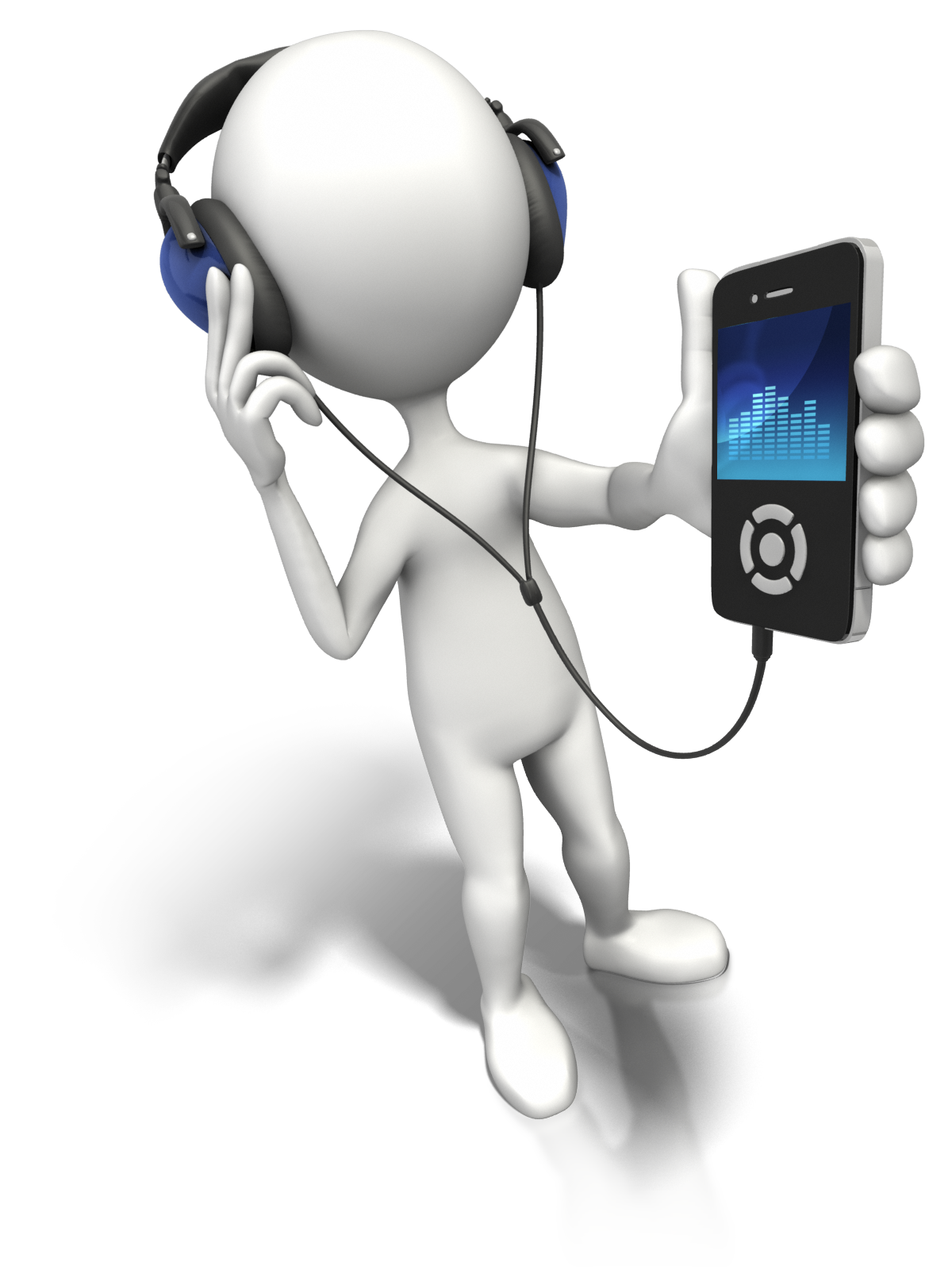 Think You Don’t Have Time to Listen to the Genealogy Podcasts? Here are 5 Occasions When You Can, and Should, Listen:
Think You Don’t Have Time to Listen to the Genealogy Podcasts? Here are 5 Occasions When You Can, and Should, Listen:
1. When you are exercising
Many of my listeners are shedding pounds and getting fit while listening to the show. One listener told me she lost over 100 pounds listening to genealogy podcasts thanks to a waterproof mp3 player and her local swimming pool! And like many listeners, Roger in Utah takes the show on his daily walks, enjoying two of his favorite activities simultaneously: walking and genealogy.
2. When you are driving
Here’s an example of how one Genealogy Gems listener, gets into gear: “I recently stumbled upon your podcasts and I must say wow! They were awesome. I listened to episode 1-56 in 10 days. I drive a truck for a living so I have plenty of time to listen.
I was on a genealogy message board and someone mentioned genealogy podcast. I knew my wife had a ipod shuffle lying around so I said hey, let me see if I can find some genealogy podcasts on iTunes. I typed in ‘genealogy’ and up popped a few different choices. I downloaded most of them but yours just caught my attention. Your enthusiasm for genealogy clearly shows through in your podcasts. Your “bubbley” attitude, if I may, is pleasant to listen to and your podcasts are full of history.
I found myself enthralled with the story of the Lennon sisters and their tragic loss of their father and the lady talking about the quilts. Please don’t tell anyone I said that as my truck driving colleagues would razz me to no end if they heard me say that. I can’t count how many times I had to pull my truck over to write down a web site you mentions or a tip you gave. Then I get home and check out the show notes for photos and other goodies. So, just a note to say thanks for helping my day go by and for the great gems that I can’t wait to use when I get home.”
3. When you are cleaning and organizing your home office / genealogy space
If you sit down just once a week and sort and clean while you listen to one episode (usually about 45 mintes) you not only be well-informed but your genealogy space will be ready for greater success! (Come on, you know you need to!)
4. When you are scanning old family photos
We all have piles of old photos and documents that need scanning. Do double duty by scanning while you listen. Check out Genealogy Gems Podcast Episode 57 for more on photo scanning and preservation with Sally Jacobs, the Practical Archivist.
When you are doing housework, yard work, or working at the office
Genealogy Gems listener Bryan writes: “Whenever I am doing housework, yard work or driving in the car I am listening to you. I have been listening to you for weeks and I am still 3 years behind…I am enjoying these podcast as they are entertaining and informative. I am eagerly trying to listen at every opportunity so that I can get current.”
And Line in Denmark writes: “I recently stumbled over one of your Podcasts, and after listening to just a few episodes I was hooked.I listen to them every day at work. Some times even twice. Extra benefit: I´m shaping up my English!
And where there’s a will, there’s a way! Here are 5 Ways to Listen:
- On your computer (through this website)
- On your iPad or Tablet (via the Genealogy Gems App)
- On your smartphone (via the Genealogy Gems App)
- MP3 Player (Load it up with downloaded episodes from the website, or through iTunes)
- Burned CD (Use iTunes to burn the downloaded MP3 files to CD and play it on your stereo)
Next read: Just How Many (and Who) are Subscribing to Podcasts?
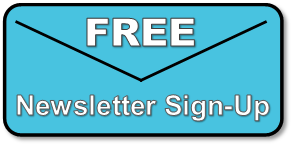
by Lisa Cooke | Jan 30, 2014 | 01 What's New, Conferences, RootsTech
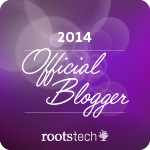 One of the great things about presenting at genealogy conferences like RootsTech is the FREE swag they give you. Well, I’m going to pass this gotta-have-it swag along: a free all-access pass to RootsTech 2014.
One of the great things about presenting at genealogy conferences like RootsTech is the FREE swag they give you. Well, I’m going to pass this gotta-have-it swag along: a free all-access pass to RootsTech 2014.
RootsTech is shaping up to become the biggest annual family history event in the U.S. There’s nothing quite like it. RootsTech combines the cutting-edge excitement of a technology industry conference with learn-it-from-the-experts classes and hands-on workshops of leading genealogy educators. Whether you’re new-ish to genealogy or an expert researcher, there’s something for you at RootsTech. Check out the full agenda here, which includes a keynote by The Pioneer Woman and over 200 sessions.
RootsTech is next week in Salt Lake City. If you can be there, enter to win this way:
1. Go to the Genealogy Gems Facebook page. Like it (if you haven’t already).
2. Post a comment with the hashtag “giveaway” (#giveaway) and WHY you want to attend RootsTech. You’ll be automatically entered to win.
3. Enter by midnight on Sunday, February 2 and I’ll announce a winner on Monday, February 3, 2014.
No purchase is necessary, but please only enter if you can use the pass or know someone who can.
by Lisa Cooke | Jan 29, 2014 | 01 What's New, Church, Records & databases, Volunteer
If you have New England roots, you need to know about New England’s Hidden Histories, an ongoing project of the Congregational Library in Boston, 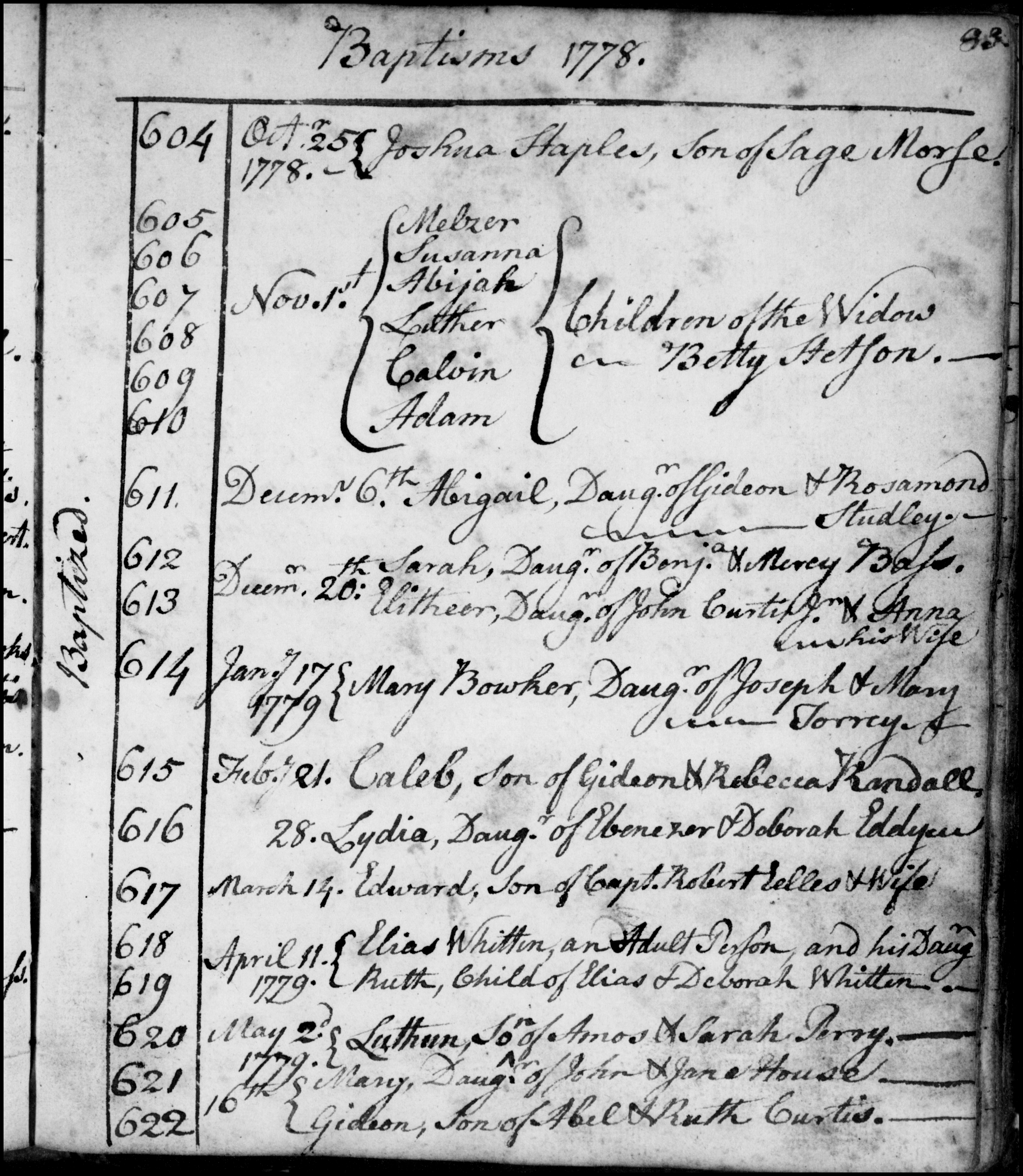 Massachusetts. This project is collecting, digitizing, indexing and posting online New England church records, a vital source for finding your family’s vital records in New England.
Massachusetts. This project is collecting, digitizing, indexing and posting online New England church records, a vital source for finding your family’s vital records in New England.
“Congregational church records are an unparalleled source of information about the religious activities of the early colonists, and about many other aspects of early American life as well,” says the Congregational Library website. ” They provide a richly detailed view of town governments and social customs, data on births and marriages and deaths, and demonstrate the ways that ordinary people participated in community-wide decision-making — information that is simply not available in any other records from that time.”
Until recently, many Congregational church records were “mostly scattered across New England, in church closets, bank vaults, or the offices of town clerks,” explains the site. “Many have been left exposed to the elements and are in danger of deterioration, or are all but impossible for the average researcher to locate.”
The Congregational Library is spearheading the effort to collect, digitize, index and make available to researchers as many of these records as possible. To date, says Digital Archivist Sari Mauro, “We currently have 17 collections online, and several more at various places in our workflow. Of these collections, two are fully transcribed. We eventually hope to be able to display all of our collections with full-text transcriptions.”
They are looking for more volunteers to transcribe these records. Would you like to help? Click here to learn more.
By the way, this collection goes beyond just baptism, marriage and death records, in an attempt to fully document church life of the times. “Our current collections vary in size from 20 pages to 2,000+ pages and address a number of topics including church founding, church membership, births and deaths, church discipline, pastoral salary, church and community controversy, and issues of doctrine and practice.”
by Lisa Cooke | Jan 29, 2014 | 01 What's New, Family History Library, FamilySearch, Libraries, Research Skills, RootsTech
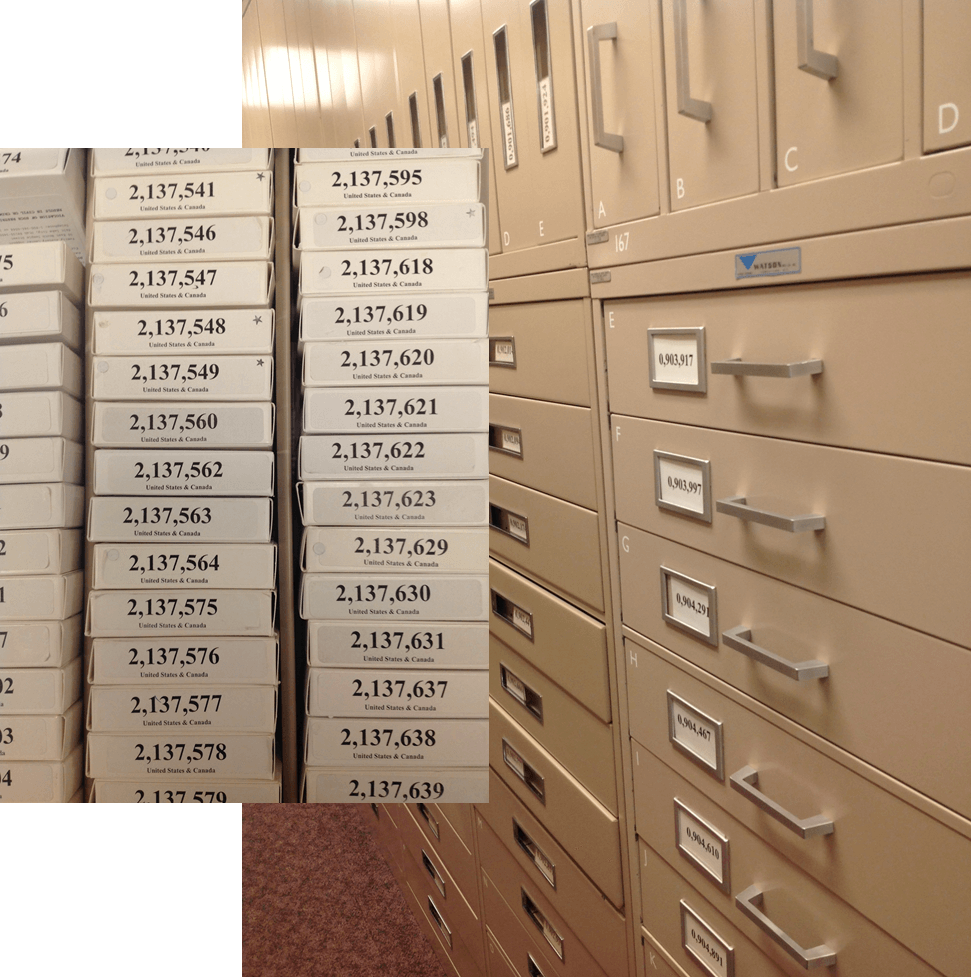
 Whether you’re going to RootsTech next week or not, at some point in your genealogical research you’ll want to use the Family History Library (FHL). The FHL, located in Salt Lake City, Utah, USA, has 6.875 billion historical records on microfilm, which contain an estimated 20.6 billion names. That’s a lot of ancestors!
Whether you’re going to RootsTech next week or not, at some point in your genealogical research you’ll want to use the Family History Library (FHL). The FHL, located in Salt Lake City, Utah, USA, has 6.875 billion historical records on microfilm, which contain an estimated 20.6 billion names. That’s a lot of ancestors!
The FHL and its sponsor organization, FamilySearch International, are busy digitizing and indexing all those records, but it’s going to take some time. And some of those records may never be digitized because of publication rights limitations or other issues. So you should know how to access all those great microfilms!
Yesterday I republished Episode 16 of the original Family History: Genealogy Made Easy podcast. It features a great interview with Margery Bell on using the Family History Library. The show notes have updated tips on using the online catalog. Click here for some must-have tips on preparing for your visit. You’ll get a lot more out of your limited time in the library if you know exactly what information you’re looking for and where you’re going to look for it!


 I had over 1650 miles to drive last weekend to make the move from California to Texas. And I’m notorious for getting sleepy on car rides.
I had over 1650 miles to drive last weekend to make the move from California to Texas. And I’m notorious for getting sleepy on car rides.


 Massachusetts. This project is collecting, digitizing, indexing and posting online New England church records, a vital source for finding your family’s vital records in New England.
Massachusetts. This project is collecting, digitizing, indexing and posting online New England church records, a vital source for finding your family’s vital records in New England.



